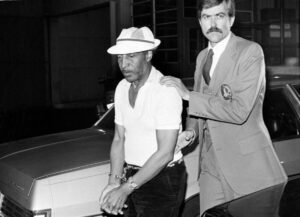
On April 1, 1984, a tragic moment unfolded in Los Angeles when Marvin Gay Sr. fatally shot his son, Motown icon Marvin Gaye, at point-blank range inside the family home. This heartbreaking event was the climax of decades of abuse and unresolved tension.
Renowned for his soulful voice and groundbreaking music, Marvin Gaye was celebrated for healing millions with his art. Yet behind the scenes, he carried immense personal pain. Born on April 2, 1939, in Washington, D.C., Gaye endured a violent upbringing. His father, Marvin Gay Sr., a minister from Kentucky raised by an abusive father himself, ruled the household with fear and brutality.
Gaye once described life with his father as “living with a king, a very peculiar, changeable, cruel, and all-powerful king.” The violence wasn’t just within the home — it extended into the rough neighborhood and public housing they lived in.
As his brother Frankie later reflected, Marvin’s death felt inevitable — a tragic end seemingly written long before that fatal day. The loss of the “Prince of Motown” remains one of music’s most painful stories.